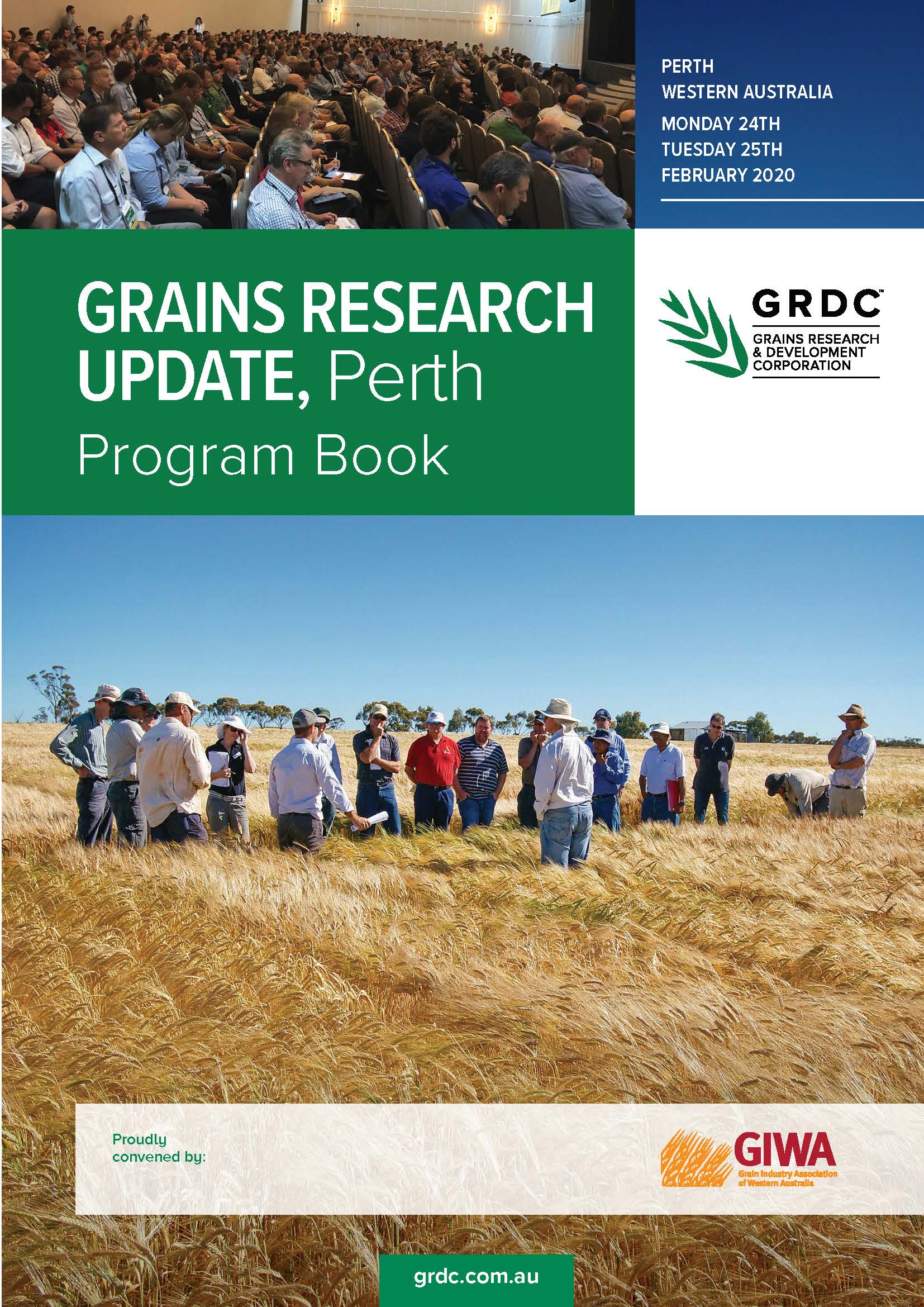GRDC Grains Research Update Perth 2020
GRDC Grains Research Update Perth 2020
Presented at:
This page contains update papers presented at the .
Browse all update papers below or click Download PDF.
Use the media tab to view presentation materials from the event such as power points, images or videos and other media.

Presented at
-
• Determine if deep tillage improves root growth and yield of crops on pale, deep sand that has been previously ameliorated with the incorporation of clay-rich subsoil to a depth of 300mm....
-
To evaluate the effects of canopy management (through nitrogen and seeding rate) in frost-prone landscapes on frost severity and duration, canopy development (flowering time) and subsequent frost damage....
-
The work was conducted to improve the heat tolerance of Australian wheat. Heat tolerant germplasm, protocols for high-throughput screening and molecular tools to assist commercial wheat breeders were developed....
-
Extreme weather events such as frost, heat and drought are a great challenge for Australian grain growers under both current and future climate scenarios (Zheng et al 2012; Barlow et al 2015). For wheat, Australia's most important grain crop, even short episodes of frost or heat stress around flowering can reduce grain yield considerably. Flowering...
-
Herbicide resistance is a major threat to the long-term sustainability of grain production through the loss of crop productivity and the economic costs of weed control....
-
HWSC methods that collect and concentrate chaff are better suited to mixed farming enterprises as they enable direct grazing of this valuable feed source....
-
At the 2015 Crop Updates we reported that we had identified RLEM with combined omethoate (Group 1B) and synthetic pyrethroid (Group 2A) resistance and indicated that current insecticides might have limited control in the future....
-
In Western Australia, break-crop options are currently limited and there is a high proportion of wheat and barley grown across the WA grain growing region....
-
A soil test is not a single absolute value but a composite average of many individual samples with a range of uncertainty caused by variations within the field....
-
Foliar fungal diseases are an important limiting factor to the yield and quality of broadacre crops worldwide. Control of fungal diseases in broadacre crops relies heavily on the use of broad spectrum single-site fungicides. Unfortunately, continuous application of fungicides has led to the selection and development of fungicide resistant populatio...
